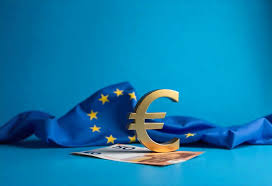EU finance ministers are working to establish the legal framework for a digital euro by the end of 2025, but significant obstacles remain, ranging from privacy protections to holding limits and the role of non-euro countries.
Earlier this year, European leaders urged finance ministers to accelerate negotiations on the project, and talks have since gathered pace. In July, discussions in the Council of the EU intensified, with broad support for the Danish presidency’s objective of reaching a common position before the 2025 deadline.
However, consensus is far from guaranteed. Several member states maintain that further technical analysis is required before moving forward.
“We must establish a fair compensation model and clear distribution conditions for banks, while ensuring that citizens benefit from strong privacy protections from the very beginning,” Germany’s Lars Klingbeil told his counterparts during a meeting in Brussels last month.
Privacy safeguards and remuneration for payment service providers are only part of the debate. Ministers have also raised concerns about the implications for non-eurozone countries, the ceiling on individual holdings, and the decision-making process surrounding the currency’s potential issuance.
Sweden has cautioned against placing undue burdens on banks outside the euro area. The Netherlands has called for strict limits on individual holdings to ensure the currency functions primarily as a payment tool. Hungary, meanwhile, is seeking a direct say on whether the initiative proceeds.
At the start of July, European Central Bank (ECB) Vice-President Luis de Guindos stressed that no decision on launching the digital euro will be taken until a legal framework is in place. Both the Council and the European Parliament are currently drafting the legislation. Once adopted, the ECB’s governing bodies will decide whether to proceed, which would trigger a preparatory phase of approximately two and a half years.
De Guindos underscored the strategic importance of the project, noting that most electronic payment providers are American. “Accelerating progress on the digital euro is essential to reduce Europe’s dependence on the United States,” he said. “Swift adoption of the legal framework is therefore crucial.”
The eurozone’s reliance on international payment companies is stark: 13 of the bloc’s 20 member states currently lack a domestic card scheme and instead depend on providers such as Visa and Mastercard.
The urgency has increased following U.S. approval of the Genius Act, designed to regulate the stablecoin market. In April, ECB Executive Board member Piero Cipollone warned that Washington’s promotion of dollar-backed stablecoins posed risks to Europe’s financial stability and autonomy, reinforcing the need for a digital euro to safeguard the single currency.



